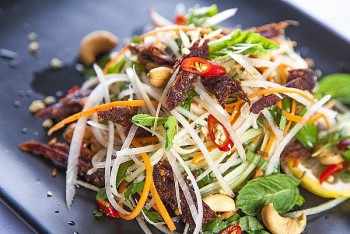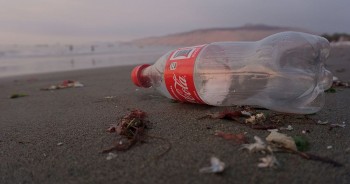Top Safest Countries to Live and Work in the World
In the era of fast information, faster consumption and new threats on a daily basis, security has never been more paramount in the establishment of a place to call home. The modern definition of ‘home’, however, has also changed. People from all around the world are increasingly seeking out territories in which they can live in relative safety while also being able to leverage a country’s policies, tax system and resources to build their own empire, whether it be for a small business or a corporation.
This means that it’s imperative to not only identify today’s safest countries in the world but to underscore the critical categories that contribute to the highest living standards and business prospects of those regions.
Iceland
According to CEO Magazine, Iceland has plenty more to offer when it comes to impressive living standards. This is why it continues to rank first as the world’s safest country – a title the Nordic nation has held for 13 years straight.
 |
| Photo: Ceo Magazine |
Livability
Iceland’s world-class living standards are reinforced with a relatively small population of just over 360,000 in 2020. The capital of the country, Reykjavík, is also its largest city with over two-thirds of the population settling there or in the surrounding areas south-west of the country. Icelandic citizens are generally perceived as friendly and unlike other parts of the world, there is little tension between social and economic classes. Equality is also a key strength with the inclusion of legal same-sex marriage, same-sex adoptions, religious freedom, and equal pay for men and women. One downside, however, is the high cost. According to the latest data from Numbeo, Iceland is the fourth most expensive country to live in behind Bermuda, Switzerland and Norway. Affordable housing and rentals have also been cited as an issue due to the low supply.
Crime and violence
Iceland has been rated the most peaceful country in the world by the ‘Global Peace Index’, and this is inherently due to having no armed forces, low crime levels and high standards of sociopolitical stability. Citizens also boast strong social attitudes towards crime while its police force is well-trained and educated. Police also prefer to carry batons and pepper spray in place of firearms.
Economic reliance
Iceland’s primary trade sectors comprise of tourism (42%), seafood (17%), aluminium (16%) and other mixed industries (24%). Given its small economy, the country can be highly volatile to external factors.
Food and natural resources
Iceland’s main food supply is backed by its robust seafood industry. Despite the country’s cooler climate and restricted growing season, some food crops such as potatoes, turnips, carrots, cabbage, kale and cauliflower can still be cultivated. This climate also discourages insects and pests alongside the use of pesticides, so most produce is often organic while pollution is relatively low thanks to the smaller population. Iceland’s only natural resource conversion is the manufacturing of cement. Renewable hydro-electric and geothermal power makes up almost 85 per cent of the nation’s primary energy.
New Zealand
New Zealand steps in as the world’s second safest country, underpinned with low crime rates, stunning natural scenery, a thriving tourism scene and close proximity to Australia’s bustling east coast. The people also make New Zealand a special place to live but there’s more to it.
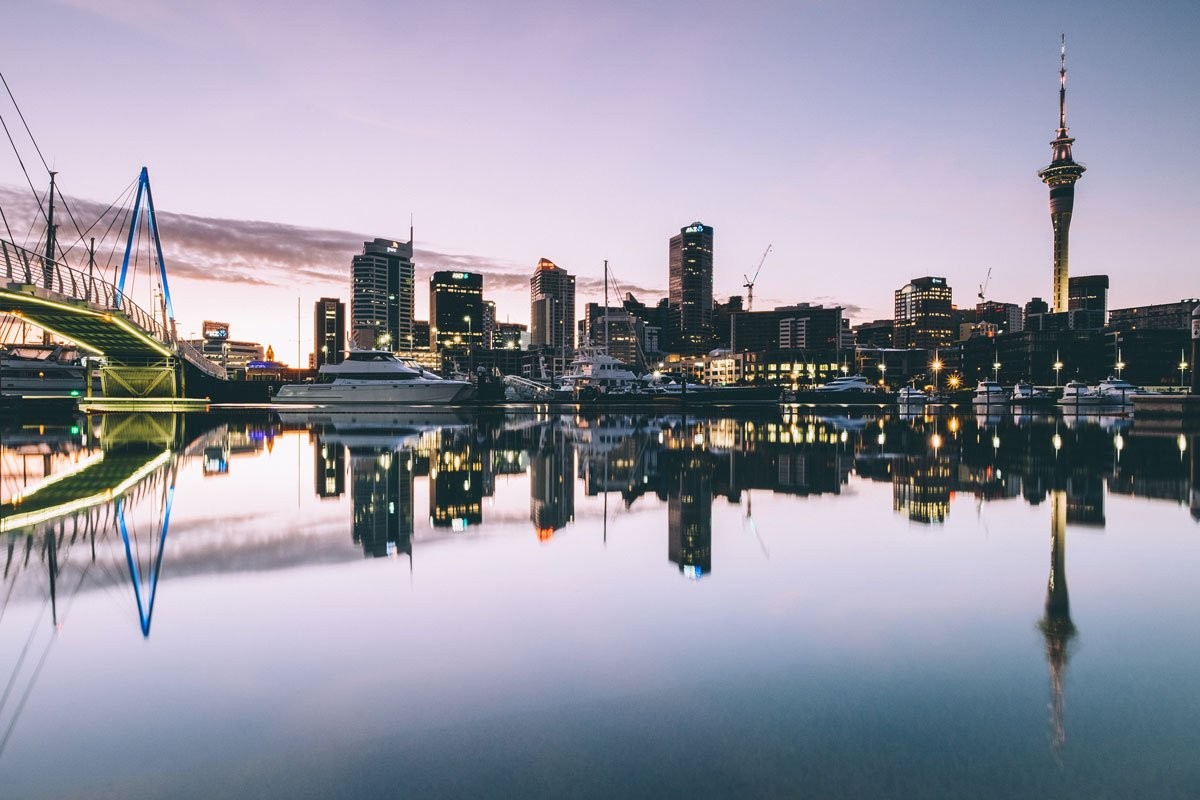 |
| Photo: Ceo Magazine |
Livability
New Zealand is generally seen as a peaceful place to live. Contributing to this is its multicultural population of roughly five million, stunning hidden beaches, temperate climate and generally progressive society set against the backdrop of developed major cities. The country also boasts universal healthcare coverage that is publicly funded. In more recent times, New Zealand has been held in high regard thanks to its successful control of the outbreak. While the capital of Wellington along with Auckland ranks highly as the country’s most livable cities, locals have cited a few issues involving home affordability versus low wage growth. Those with secure housing and stable employment will benefit the most from living in New Zealand while those who don’t may find it challenging.
Crime and violence
New Zealand’s score did take a step back since the terror attack on Christchurch in 2019, which saw 51 people lose their lives to an Australian terrorist. Prior to this, New Zealand was known for its low crime rate involving violence. It’s main crime statistics usually revolve around theft while Numbeo rates its overall crime rate as low to moderate. New Zealanders are mostly open-minded and have laws that protect a citizen’s freedom of speech or expression. The standard police there also do not carry firearms.
Economic reliance
New Zealand’s economy is propped up by a sizable services sector, which accounts for a large part of the country’s gross domestic product activity. Other large industries include aluminium production, metal fabrication and wood and paper products. Food processing also forms the economy along with segments of mining, manufacturing, electricity, gas, water waste services and exports accounting for the remaining GDP.
Food and natural resources
New Zealand’s robust farming sector delivers a range of food produce from high quality dairy to meat, which is both exported and consumed locally. Due to its large dairy export industry, the country’s agriculture industry also employs thousands of locals. Natural resources such as coal, silver, iron ore, limestone and gold are all in abundance and the country ranks in the top 30 for iron ore and gold production.
Portugal
Portugal is considered the world’s third most peaceful country to live in, but it’s not just the rabid football culture that’s a highlight. Over recent years Portugal has seen its ranking moving closer to the top thanks to an increased police presence keeping the crime rate low. Beyond that the country showcases a rich culture dating back centuries, picturesque countryside, prime surf beaches and a robust wine industry.
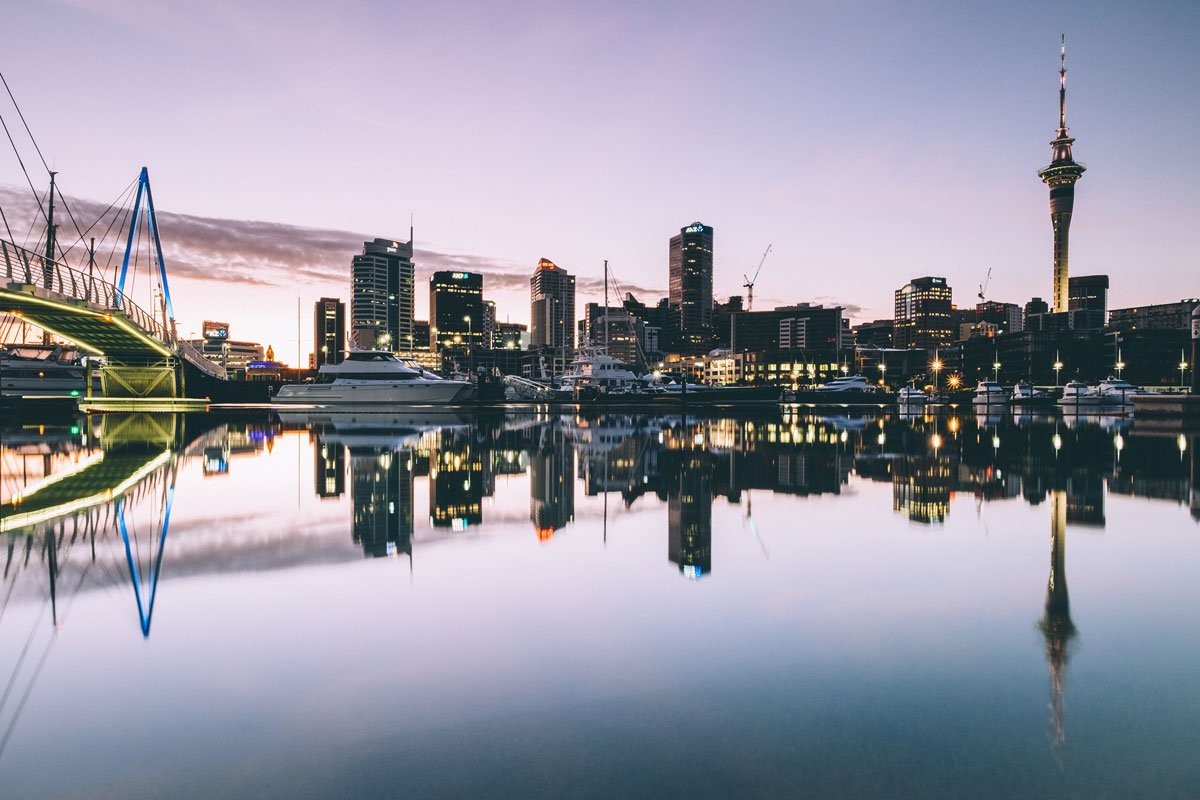 |
| Photo: Ceo Magazine |
Livability
According to International Living, Portugal offers arguably the lowest cost of living in Western Europe. Everything is affordable, from groceries to temporary accommodation to rent. Even eating out can be an affordable option if you choose to forego the more premium options. Over the years, the economy has seen a resurgence thanks to a very low unemployment rate boosted by its safety record. In 2020, it was ranked the best country for retirement, according to the ‘Annual Global Retirement Index’.
Crime and violence
Portugal’s police are armed but their wide presence has resulted in low to moderate crime rates across the country, according to statistics from Numbeo. All violent crimes remain low with bribery and corruption rating the highest while Lisbon ranks as the country’s safest city followed by Porto and Amadora.
Economic reliance
As of 2019 before the pandemic hit, Portugal’s economy was ranked 34th in the World Economic Forum’s ‘Global Competitiveness Report’. The country features a diverse range of industries propping it up including its largest – the tertiary sector – followed by the natural resources sector, agriculture, fisheries, industrial, energy and services.
Food and natural resources
Fine food like wine and olives are affordable in Portugal thanks to its local production. Its natural resources include an abundance of forests, which supply half of the world’s cork. Other mined natural resources include lithium, tungsten, tin and uranium alongside the aforementioned fishing industry.
Denmark
As of 2021, Denmark ranks third in the world for the ‘Global Peace Index’. It has long been considered one of the safest and happiest countries to live thanks to its robust sense of community, equality, work–life balance and welfare support for all citizens.
Livability
Denmark carries all the hallmarks of a highly progressive and successful nation, and this is reflected in its top global ranking. Its only real drawbacks include learning Danish even though English is a second language, higher taxes, higher expenses and the predominantly grey weather for most of the year. Beyond this there is a strong sense of common responsibility and social welfare. As a welfare state, citizens of Denmark get to enjoy services and benefits that support a comfortable lifestyle. Its higher taxes pay for healthcare, tuition-free education and at-home care helpers for the elderly.
Crime and violence
Crime rates are extremely low in Denmark, according to Numbeo statistics. Corruption in business and politics is extremely low as honesty and trust is a high priority of the country. The capital of Copenhagen also ranks as the country’s safest city.
Economic reliance
Denmark boasts a mixed economy of government services alongside a high reliance on foreign trade. The services sector makes up 80 per cent of the country’s jobs with the rest in engineering, manufacturing and agriculture.
Food and natural resources
Denmark has a small agriculture industry, which includes animal and organic food production. While not expansive, it does have some oil and natural gas reserves in the North Sea. Food prices can be a challenge though as the country is ranked the most expensive when it comes to food and drink products across the European Union. Danish prices for staples like bread and wheat products are on average 30 per cent higher than the EU average.
Canada
It’s no surprise to see Canada among the world’s safest countries. It continues to be ranked as one of the world’s most peaceful countries, coming in at sixth on the ‘Global Peace Index’. Here’s why.
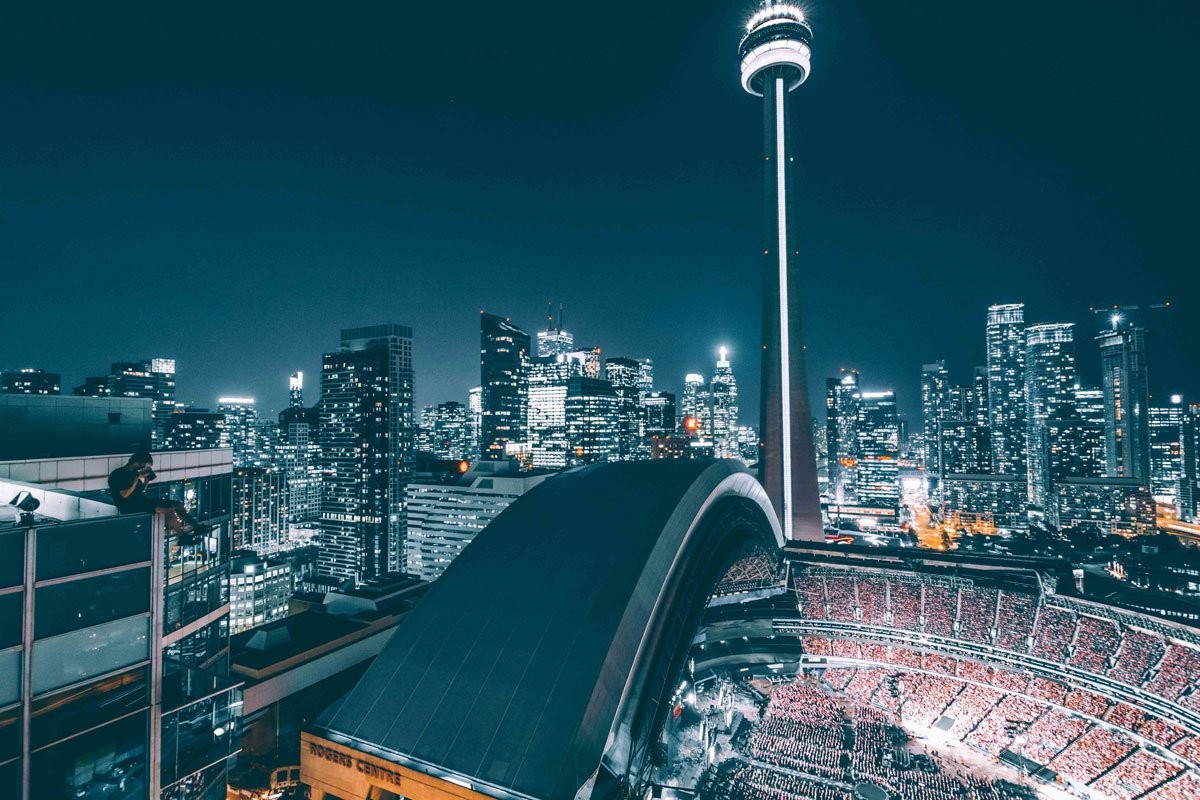 |
| Photo: Ceo Magazine |
Livability
With everything from low violence and crime to the world’s friendliest citizens to job opportunities and political stability, Canada is easily one of the safest countries today. Its access to universal healthcare is also a win over neighbouring US. When further compared to the US, Canada can be cheaper or more expensive to live in depending on the service. Health insurance and rent is less but consumer goods such as staple foods and fuel can cost more due to the weaker Canadian dollar. The country is perfect for those who rate a socially progressive government alongside scenic geography ripe for skiing, sailing or outdoor adventuring.
Crime and violence
Canada’s crime rate stands at about one-third of the US with the majority of Canadians feeling safe in their country. While the past three years have seen an increase in crime, Numbeo still finds its crime levels as between low to moderate.
Economic reliance
Canada boasts a highly diverse and developed mixed economy with a huge portion of that driven by the services sector, which employs three quarters of Canadians. Some of its main key industries include real estate and property, manufacturing, mining, oil and gas, finance and construction.
Food and natural resources
Canada holds the third highest total estimated value of the world’s natural resources, which is valued at US$33.2 trillion. It also boasts the world’s third largest petroleum reserves and ranks as the fourth largest exporter of petroleum and natural gas. Thanks to its relatively small population of 37.5 million and abundance of natural resources, Canada is considered an energy superpower. Its significant agriculture industry is bolstered with wheat and grain production, which is exported to the US and Asia.
Singapore
Singapore and its 5.7 million citizens enjoy some of the highest levels of personal security in the world thanks to its strict laws, which even extend into the smallest of crimes – chewing gum was outlawed in 1992 in favour of public cleanliness and severe penalties still exist for everything from graffiti to jaywalking to spitting. While the general quality of living is high, living in Singapore falls on the more expensive side.
Livability
Follow the rules and there should be no issues with law enforcement in Singapore. While its rigidity might deter some of the more adventurous, it’s the reason why Singapore has been able to flourish to become the most open free market economy in the world today. This means corruption is low, tax rates are low, and policies are pro-business. It’s also a hub for professional expats meaning a diverse cultural mix of people can be found from all corners of the world. One downside to Singapore is the higher cost of living. Expats can however opt for simple lifestyle changes like living more like the locals to save money in this highly developed country with world-class amenities. By worldwide standards, Singapore also has an efficient and widespread healthcare system that is publicly funded and can even be extended to those with permanent residency.
Crime and violence
Singapore benefits from some of the lowest crime rates in the world. The government and the country’s police have strict gun control laws, so violence is rarely ever evident. The country is also ranked first for infrastructure security and personal security, while its digital security is ranked second in the world and eighth for health security.
Economic reliance
Singapore’s reputable economy is made up of several state-owned enterprises. Temasek, which is the country’s sovereign wealth fund, holds a majority stake in the nation’s biggest companies including Singapore Airlines, Singtel, MediaCorp and ST Engineering. Beyond this the economy is a major foreign direct investment outflow financier and also attracts inward flow FDI from international investors thanks to its highly stable free market. FDI is a form of investment represented as controlling ownership in a business in one country by an entity from another country. Singapore also exports goods in the form of electronics, chemicals, wealth management and other services.
Food and natural resources
Where Singapore doesn’t fare as well is in traditional agriculture. Very little of its land is arable meaning crops can’t be naturally cultivated. Instead it relies on agrotechnology to satisfy this demand. Natural water resources are also scarce with the country getting most of its supply from a mix of local catchments, imported water, high-grade reclaimed water and desalinated water.
Japan
The neo-glitz mixed intriguing culture and century’s old tradition has long been an appeal for calling Japan home, but it doesn’t come without some notable drawbacks despite its reputation for safety and efficiency.
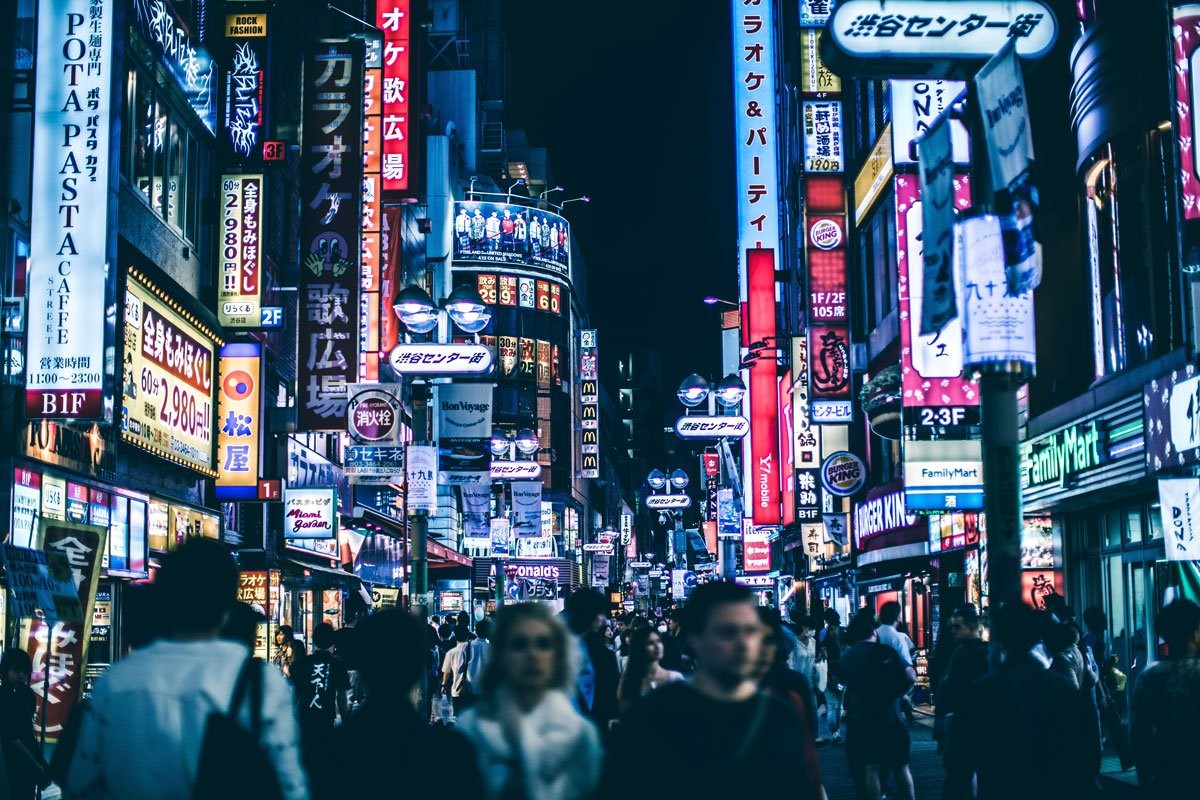 |
| Photo: Ceo Magazine |
Livability
The 2019 ‘Global Peace Index’ ranks Japan as the world’s ninth safest country, and it has remained in the top 10 for 13 years thanks to its low crime, low civil unrest and political stability. While most tourists are fond of visiting Japan, living in the country long-term does come with some limitations. Space and privacy are major disadvantages with 126 million people calling the country home and almost 14 million residing in the capital of Tokyo alone. Japan’s immigration policy is also notoriously difficult for foreigners to navigate. To obtain permanent residency, people need to live in Japan consecutively for 10 years. Recent policy changes have made it slightly easier though with a point scoring system, but the country is still considered one of the most monocultural and insulated countries in the world. Another downside is the cost of living in Japan, which consistently ranks among the highest in the world. Recent risks to keep in mind include the growing tension with China as well as the country’s national debt of US$12 trillion – a figure that ranks Japan first in debt to GDP around the world.
Crime and violence
Safety is one of the leading traits in Japan and according to the ‘Safe Cities Index’ from the Economist Intelligence Unit, Tokyo is ranked the safest city in the world. This ranking includes a first place in cybersecurity, second place in health security and fourth place in infrastructure and personal security. Gun ownership in Japan is also extremely low. Numbeo lists the rates of crime in Japan as between low and very low.
Economic reliance
As a highly developed free-market economy similar to Hong Kong and Singapore, Japan stands as the world’s second largest developed economy. Its main sectors of economy include finance, services including airlines, a diverse industrial sector including automotive, mining, fishery and agriculture.
Food and natural resources
Japan’s mountainous and volcanic landscape means it has minimal natural resources to support an expanding economy and population. To counteract this, it exports leading goods or services in return for the import of raw materials and petroleum. It is also the largest single national importer of fish and fishery-based products.
Switzerland
There’s much more to Switzerland than just fine chocolate and picturesque snow-capped mountains. The country is a hub for expats from all over the world and its central European location makes it ideal as a home base for exploring neighbouring countries while living in one of the world’s top 10 safest countries.
Livability
There are both pros and cons to living in Switzerland. Positive aspects include the ease of finding a community to fit into, universal health care, proximity to other European countries and a bustling outdoor recreation scene including some of the best skiing conditions in the world. Education and ease of starting a business is also simple, even for expats; any foreigner can start a business if they can meet certain conditions, including establishing a local office and hiring a Swiss director. Some of the downsides include a slight bias towards foreigners and the very high cost of living, which rivals New York and London.
Crime and violence
It’s ironic that Switzerland ranks very high among the world’s safest countries, yet it is also known for its significant weapons export industry. Nonetheless, Numbeo rates crime in Switzerland as low to very low. The safest city starts at Lausanne followed by Geneva, Basel, Bern and Zurich.
Economic reliance
Switzerland’s economy is renowned for boasting one of the most advanced free markets in the world. Making up a majority of this is its services, Swiss banking and tourism sectors. Another notable industry is its watch industry – Switzerland is the leading exporter of high-end watches and clocks around the world. Its industrial sector includes major companies such as Nestle and robot manufacturers such as ABB. Trade also plays a huge component of the economy with trading partners including Germany, US and China.
Food and natural resources
Switzerland is highly protective of its domestic food production industry, which accounts for 60 per cent of the food consumed in the country. Domestic production is highly encouraged, and the region currently grows its own potatoes, vegetables, pork, veal, cattle and most milk products.
Vietnam
Crime and violence
The U.S. Department of State has assessed several localities, including Hanoi as being a high threat location for crime directed at or affecting official U.S. government interests. However, violent crime against foreigners is uncommon, according to OSAC.
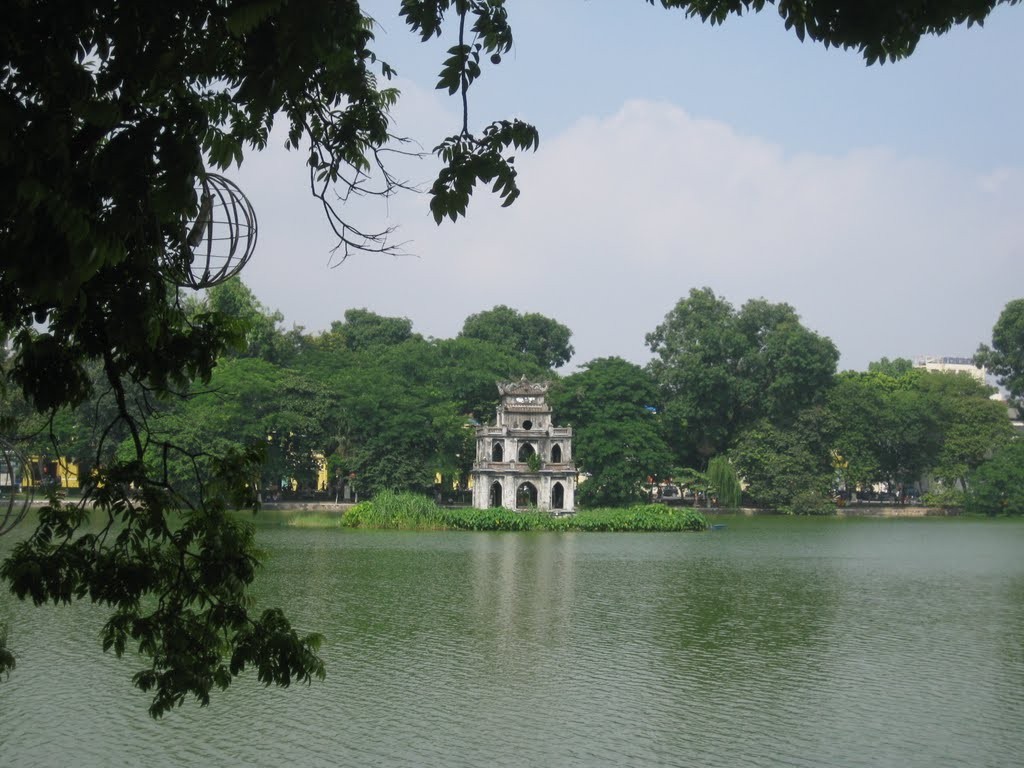 |
| Photo: MAPIO |
Food and natural resources
Vietnam’s food system benefits from the diverse climate and geology, which allows a large variety of nutritious and fresh foods to be produced. Each region carries their distinctive and unique characteristics that reflect the living conditions of the people there, Sustainable Vietnam.
Vietnam has various natural resources including forest, sea and mineral resources. Vietnam's forests are valued to be high diversity with rich fauna and flora.
As reported by Inside Travel, there are about 800 timber, 60 bamboo and over 1,500 medical plant species. The forest fauna includes 275 mammal, 826 bird, 100 amphibian and 180 reptile species. Especially, many rare and precious animals in Vietnam are on the World Red List.
In addition to huge potential energy sources like oil, natural gas, coal and hydropower, Vietnam is rich in other mineral sources, such as iron ore, copper, gold and building materials. Moreover, sea sources and agricultural potential also enrich Vietnam’s natural resources.
Even though the S-shaped country is battling its worse Covid-19 outbreak yet, the Government and people are going all out to contain the virus. With such concerted efforts, Vietnam expects a successful Covid-19 containment like it used to three times before.
 | Top 10 Most Dangerous Sports Worldwide Sports may be a time of joy and pleasure, but accidents can occasionally happen. Even if you are not directly confronting your opponents, competition in ... |
 | Top 10 Best Campsites In Vietnam There are many beautiful sites in Vietnam you can visit in the summer holidays, camping in nature and taking your time away from all the ... |
 | Tan Son Nhat Named Top 10 Best International Airport Vietnam’s Tan Son Nhat International Airport has recently ranked by Skytrax as a top 10 best airports worldwide serving 20-25 million passengers a year |
Recommended
 World
World
India strikes back at terrorists with Operation Sindoor
 World
World
India sending Holy Relics of Lord Buddha to Vietnam a special gesture, has generated tremendous spiritual faith: Kiren Rijiju
 World
World
Why the India-US Sonobuoy Co-Production Agreement Matters
 World
World
Vietnam’s 50-year Reunification Celebration Garners Argentine Press’s Attention
 World
World
"Will continue offering our full support to Indian govt": US FBI Director after Pahalgam attack
 World
World
"Great Leader": JD Vance Lauds PM Modi During His India Visit
 World
World
Trump’s Tariff Pause: A Strategic Move from “The Art of the Deal”?
 World
World


